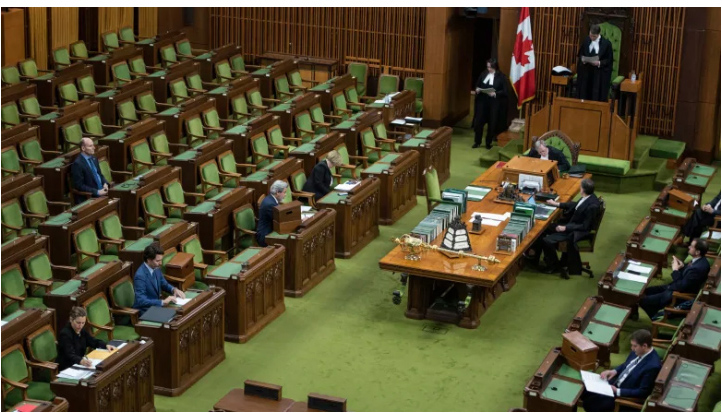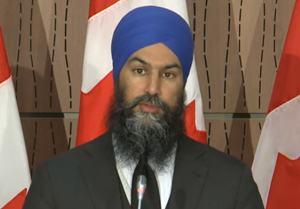Monday April 20, 2020 ~ NATIONAL
by Mary Brooke ~ West Shore Voice News
Ahead of today’s first regular session of the House of Commons since the acute phase of self-isolation and physical distancing during COVID-19, NDP Leader Jagmeet Singh addressed media regarding the continued need to include employment-age students in the financial support mechanisms that the federal government has been providing to other sectors of the economy.
At present, if students did not already have employment arranged for this summer prior to the official pandemic at mid-March or are now unable to get work (where employers cannot now offer employment during COVID-19) there is no mechanism for that group of young Canadians to receive support from the social safety net, including from the Canada Emergency Response Benefit (CERB) program.

Today’s session of parliament is scheduled to start at 11 am local time in Ottawa (8 am Pacific Time). Unlike the emergency sessions on March 24/25 and April 11 (pre-session | post-session), there is no specific legislation related to COVID-19 to be passed in an emergency manner.
Singh also said that the NDP is in favour of one in-person session in the House of Commons each week, with also two virtual sessions for ‘Committee of the Whole’ (questions among MPs in the House) each week so that the representation of constituencies across Canada can be maintained.
The Bloc Quebecois and Green Party are also in favour of the three weekly sessions in that manner, noting the safety aspect of adhering to physical distancing as much as possible during the COVID-19 pandemic.
The Conservatives want three sittings per week in the House.
It’s unlikely a large contingent of MPs from beyond the Ontario/Quebec areas could attend in-house sessions on a regular basis. There is the consideration of staff to support the sessions as well as the MPs being there.
The NDP have been instrumental in seeing that CERB now includes self-employed and part time, gig and contract workers, and were actively in support of the wage subsidy being increased to 75% from the initial 10% as first brought in by the Liberal government.
Meanwhile, the NDP Leader says that “parliamentarians are providing important services across the country” through their constituency offices.



